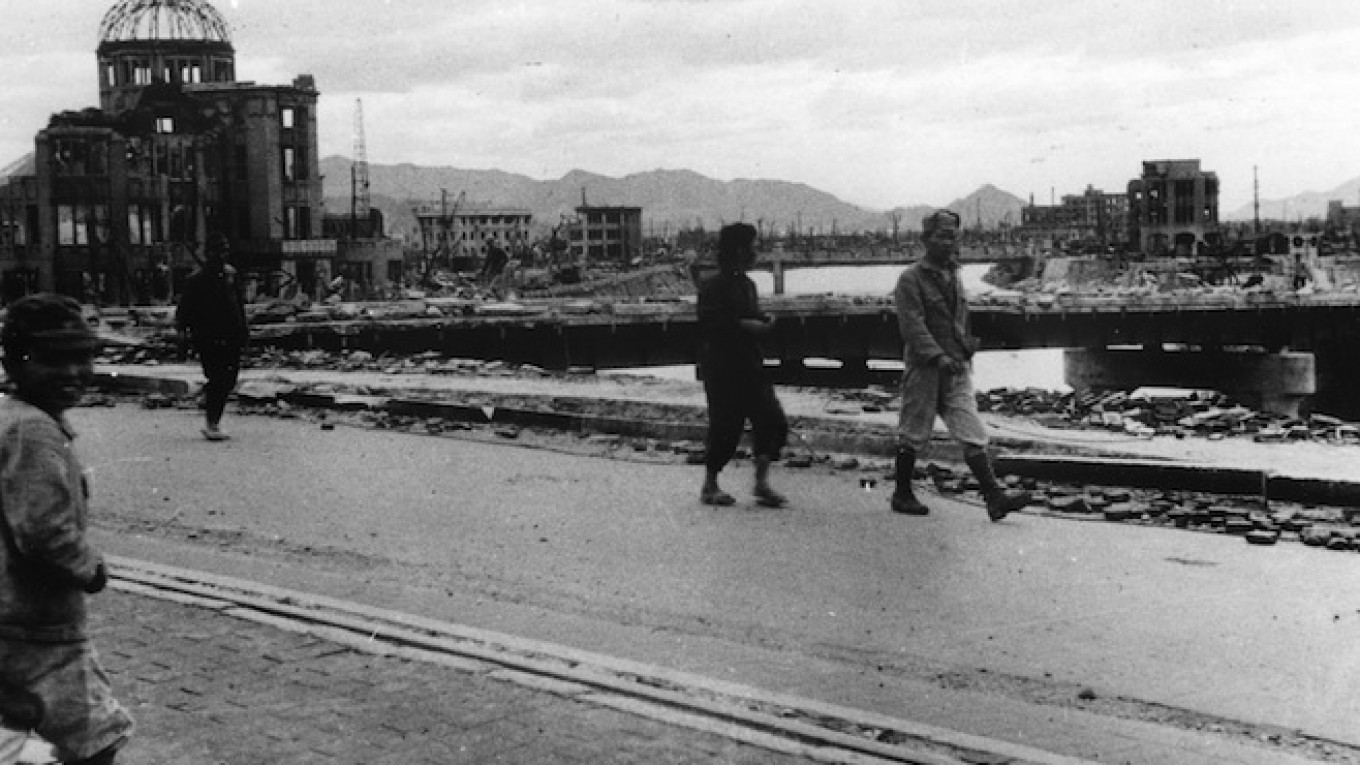Residents of Russia's far eastern island of Sakhalin gathered to commemorate the victims of the Hiroshima and Nagasaki nuclear bombings as the world marked the tragedy's 70th anniversary, news agency Interfax reported.
Oleg Kozhemyako, acting governor of the Sakhalin region, joined Japanese general consul Akira Imamura on Thursday for a ceremony in the city park of Yuzhno-Sakhalinsk, the island's administrative center.
After convening in the park's Alley of Sakura (cherry blossom), the two officials proceeded to write words of support to the Japanese people on a big paper crane.
A thousand paper cranes were later donated to Japanese children by the residents of Sakhalin.
"Lanterns were lit up and paper cranes were made as a symbol of peace," the Sakhalin government's press office told Interfax. "Many people couldn't hold their tears back, remembering the story of Hiroshima girl Sadako Sasaki."
Sasaki was two years old when the bombing occurred, Interfax noted. The girl survived miraculously, but 10 years later was diagnosed with leukemia as a result of being exposed to nuclear radiations.
According to Interfax, Sasaki decided that during her permanence in the hospital she would fold a thousand origami cranes, which would grant her one wish according to a Japanese legend. Sadly, the girl only managed to fold 644 cranes before dying.
At least 200,000 people were killed after two atomic bombs were dropped by the United States on the Japanese cities Hiroshima and Nagasaki on Aug. 6 and 9, 1945.
During the ceremony, Imamura urged world leaders and young people to visit Hiroshima and Nagasaki to see with their eyes the impact of the tragedy.
"Demonstrations of military power such as atomic bombings are crimes with no expiration date," Kozhemyako was quoted as saying by Interfax. "Today, as various countries possess powerful nuclear weapons, it's especially important to remember the lessons of World War II."
A Message from The Moscow Times:
Dear readers,
We are facing unprecedented challenges. Russia's Prosecutor General's Office has designated The Moscow Times as an "undesirable" organization, criminalizing our work and putting our staff at risk of prosecution. This follows our earlier unjust labeling as a "foreign agent."
These actions are direct attempts to silence independent journalism in Russia. The authorities claim our work "discredits the decisions of the Russian leadership." We see things differently: we strive to provide accurate, unbiased reporting on Russia.
We, the journalists of The Moscow Times, refuse to be silenced. But to continue our work, we need your help.
Your support, no matter how small, makes a world of difference. If you can, please support us monthly starting from just $2. It's quick to set up, and every contribution makes a significant impact.
By supporting The Moscow Times, you're defending open, independent journalism in the face of repression. Thank you for standing with us.
Remind me later.






